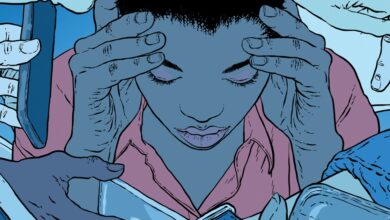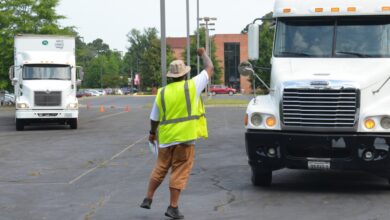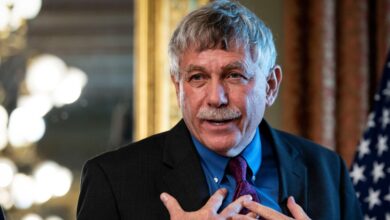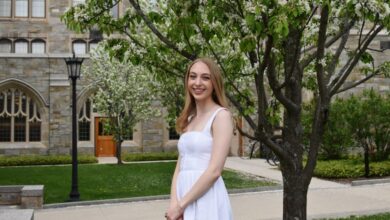How Pedophilia Research Led a University to Part Ways With a Scholar
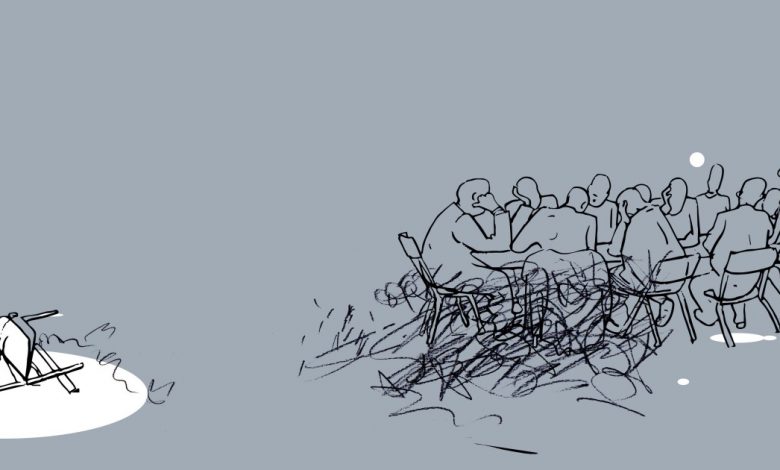
Walker’s book, A Long, Dark Shadow: Minor-Attracted People and Their Pursuit of Dignity, examines adults who are sexually attracted to children but say they refrain from acting on that attraction. The scholar avoids the term “pedophiles,” even though its literal meaning describes only desire, not behavior, in part because it has come to be synonymous in the public mind with “child molester.” In reality, some, and perhaps many, adults who hold such attractions have not been convicted of molesting minors, according to Walker and other researchers.
“Allow me to be clear: This book does not promote sexual contact between adults and minors,” Walker writes in the introduction. Knowing some readers might see it that way, though, Walker prepared. Before the book’s publication in June 2021, the scholar, then an assistant professor of sociology and criminal justice at Old Dominion University, wrote a memo for university leaders with talking points to respond to that misconception, should objections to the research arise.
They did.
After a snippet of an interview with Walker went viral, people branded Walker, whose pronouns are they/them, as an advocate of child abuse. Students petitioned to remove Walker from campus. Colin Jost joked on Saturday Night Live that a professor was “being criticized after saying that it is not immoral for adults to be sexually attracted to children. Find out why in his new book, Wait! Hold On! Hear Me Out … ” Tucker Carlson billed Walker as yet another example of higher education out of control.
As a torrent of unwanted attention and threats fell on Old Dominion, the university placed Walker on administrative leave. Less than two weeks later, Walker resigned. The university depicted the decision as mutual.
In a statement at the time, the president of Old Dominion said it is a community that “respects academic freedom and remains willing to discuss controversial ideas.” Professors at the university question that claim. Some of Walker’s colleagues think the institution ushered the assistant professor out the door. They say Old Dominion, and specifically the president, abandoned an academic who studies one of the most taboo topics possible. They’ve wondered what would happen if their own work generated such a hurricane.
“The president and the provost have continued to reiterate that they support academic freedom. Those words are very important,” said Mona J.E. Danner, chair of Walker’s department. “The actions of the last several months do not support those words.”
Did Old Dominion make a difficult trade-off between principle and public safety? Or did it cut and run when asked to protect a scholar with controversial ideas?
They earned a master’s degree in social work from Columbia University in 2010 and spent a year counseling victims of sexual assault and other violent crimes, including children. While in that job, “if you told me that in five short years I was going to be researching minor-attracted people’s experiences with facing stigma, I would’ve called you absurd,” Walker writes. Then they learned of the existence of adults who are attracted to children but avoid any sexual contact.
“I stopped assuming that their attractions meant something about their behavior,” Walker writes, “and I began asking questions.”
Questions like how such people form identities, how they navigate societal stigma, and how they’ve avoided harming children. A Long, Dark Shadow, published by the University of California Press, distills Walker’s interviews with 42 subjects and argues that the stigma can keep some people from disclosing their attractions to others, and ultimately “propagates the danger to children that we all fear.” Walker did much of the research while earning a Ph.D. in criminal justice from the City College of New York’s John Jay College of Criminal Justice and the CUNY Graduate Center.
Walker’s avoidance of the term “pedophile” is not unique among researchers in the field. “We are mindful, especially in this realm, about how we talk about people, not wanting to use language that’s pejorative, not wanting to use language that triggers this idea that this is a foregone conclusion,” said Elizabeth J. Letourneau, who directs the Moore Center for the Prevention of Child Sexual Abuse at the Johns Hopkins Bloomberg School of Public Health. Letourneau said she did not know who came up with the phrase “minor-attracted person,” but it is becoming a standard term. She uses “people with sexual attraction to children.” Walker’s work, she said, is “exactly” the type of research that’s also been conducted at Hopkins.
In their book, Walker advocates for treating minor-attracted people with empathy. “These are real human beings who happen to have attractions that they never asked for, that they typically do not want, and that they cannot get rid of,” Walker writes. That appeal for compassion could be misunderstood, Walker knew. So did Danner, their chair. “One never knows what might happen, but I just wanted to be prepared,” she said.
So Walker wrote a memo for university officials in May 2021, addressing that possibility. (Details of the memo were first reported by the student publication Mace & Crown, which also raised questions about Walker’s case and academic freedom.)
“While it is customary for people to associate attractions to minors with sexual offending against children, this book explicitly separates these concepts. The book does not advocate for the normalization of sexual activity between adults and minors, and neither do I,” the memo says.
Danner sent Walker’s memo to Jonathan Leib, interim dean of the College of Arts & Letters. She included a synopsis of Walker’s book and credentials and her observation that some of the predicted media attention “may inaccurately portray Dr. Walker’s research and attack them” and the university.
On May 20, 2021, Leib passed along the document to university leaders, including John R. Broderick, the president, who was stepping down soon, Austin Agho, the provost, Rhonda L. Harris, then the chief of police, and Giovanna Genard, assistant vice president for public relations. Walker’s book is an important addition to existing literature on sexual-abuse prevention, Leib wrote. However, some people might just read the title and “misinterpret” the book and its goals.
Walker’s book is an academic text and unlikely to receive much publicity, the dean wrote. But “we wanted to alert you to the possibility, just in case.”
The department chair explained Walker’s work. She and the woman talked for about 20 minutes. At the end of the conversation, Danner asked the caller, “How do you feel now?” The woman indicated that she felt better, saying something like, “This is not what I thought this was.”
Danner considered the conversation a success. That feeling of triumph quickly subsided.
A couple days earlier, the Prostasia Foundation, an advocacy group that says it supports research to prevent child sexual abuse, published a half-hour video interview with Walker about their research. A website called 4W — an outlet for “today’s feminists who are boldly stepping outside of the mainstream narrative” — wrote an article about the interview with the headline: “’Non-Binary’ University Instructor Calls to ‘Destigmatize’ Pedophilia,” which got attention. Then, a clip of that interview went viral on Twitter.
In the clip, Walker explains why they use the term “minor-attracted person.” “I’ve definitely heard the idea that you brought up, though, that the use of the term ‘minor-attracted person’ suggests that it’s OK to be attracted to children,” they say. “But using a term that communicates who someone is attracted to doesn’t indicate anything about the morality of that attraction.”
The Twitter account Libs of Tiktok posted the video, writing:
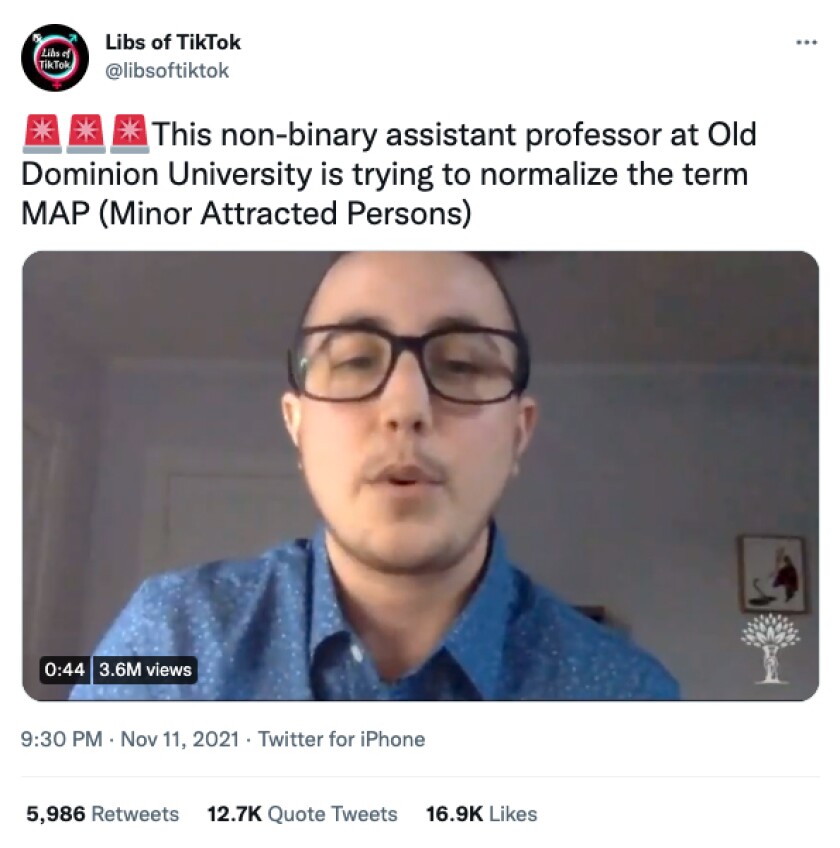
In a thread about Walker, the account wrote, “They are coming for your kids,” and, “He’s really out here defending pedos.”
Soon the university was deluged with complaints, outrage, and threats. Critics disagreed that destigmatizing sexual attraction to children would protect them. Social media ignited with calls for Walker’s dismissal, or worse. “Flush em all out into the open by letting them think its ok to share your predatory nature, then exterminate them all. Allyn Walker, you’re in the open and you’re not hard to find,” one person tweeted. Some of the backlash focused on Walker’s transgender identity and accused Walker of being a pedophile. When Tucker Carlson covered the story, he referred to Walker as “a self-described ‘nonbinary assistant professor,’” adding, “we have no idea what that means, by the way, but that’s what this person calls him or herself.” Beside Carlson was a graphic that announced: “The Left’s Depraved New Low.”
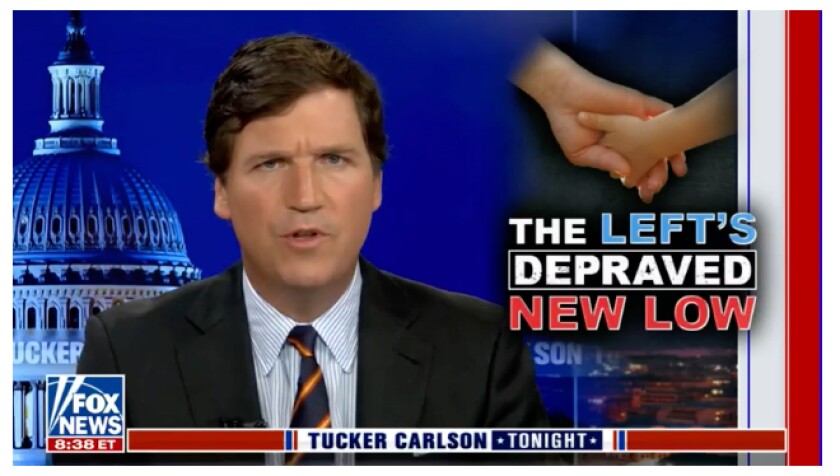
Students at Old Dominion also objected. They mounted a protest and urged the university to fire Walker. At ODU, “pedophilia is not welcomed. And neither is the idea of MAPs,” the protest’s organizer told the Mace & Crown. “There is no such thing as a minor-attracted person.” At one point, someone went to the sixth floor of Walker’s building, crossed off their name in the faculty and staff directory, and scrawled over it, “PEDOPHILE.”
Amid the onslaught, Danner played defense. She was in frequent contact with university officials and with Walker. She resent Walker’s memo to Genard, the assistant vice president for public relations. She sang Walker’s praises to the provost, emphasizing that they were a highly productive researcher and beloved teacher.
Initially, she was “thrilled” with the university’s response. Two days after the clip of Walker’s interview started making the rounds, the university issued a statement quoting Walker’s defense of their research and supporting free inquiry: An academic community “plays a valuable role in the quest for knowledge.” That means “being willing to consider scientific and other empirical data that may involve controversial issues and perspectives,” it read.
Danner’s sense was that “this was a storm that we were going to weather together.”
On November 16, Walker taught two classes in person, with two campus police officers stationed outside the classroom door, according to Danner, who accompanied Walker to those classes. The sessions went well. Walker read a short statement at the beginning of each class and saw some “nods” from students, the assistant professor told Danner via email. Attendance was normal, and students were engaged. Walker was “optimistic for my future classes the rest of this semester,” they wrote.
Danner passed along Walker’s assessment to the provost, writing, “In short, it is not true that all students are against or fearful of Dr. Walker, and many students are comfortable with Dr. Walker as their professor.”
But that day, according to Danner, Walker was called to a meeting with several senior administrators, including September Sanderlin, the university’s vice president for human resources. At the meeting, Walker was repeatedly asked what they wanted to do, and each time responded by saying they wanted to stay at Old Dominion and teach, according to Danner, who spoke with Walker directly after the meeting.
After each reply, Walker was asked something like, “What would be the next best thing?” or “What else would you like?” according to a summary of what Walker told Danner, which Danner later emailed to the Faculty Senate’s executive committee. Walker “repeatedly tried to determine whether there was any path forward for them at ODU in the VP’s minds, which admin would not answer directly; ODU admin continually pressed Dr. Walker to consider going to another university or pursuing another ‘opportunity,’” Danner wrote. (Sanderlin did not respond to a request for comment.)
During the meeting, Walker was placed on indefinite administrative leave. They left with the impression that they probably did not have a future at Old Dominion. They called Danner, who rushed over to meet them. Another faculty member, Ruth Triplett, a professor of sociology and criminal justice, picked the pair up and drove Walker home.
Walker was “in an emotional state,” Triplett told The Chronicle, “and Mona and I were both in an emotional state because no one expected that they would be placed on administrative leave.”
Walker’s leave notice, obtained by The Chronicle, said that the action was being taken “due to concerns over your safety and that of the campus, and to address the immediate effects of the reaction to your research and book which has impacted the University’s mission of teaching and learning.”
Brian O. Hemphill, Old Dominion’s new president, reiterated that concern for safety when he explained Walker’s leave in a message to campus. “Ideally, we would be able to debate even the most challenging issues without disruption or threats of violence, but that is not the world we live in today,” Hemphill said. “Our campus has recently become the target of threats and other unacceptable disruption.”

Old Dominion University
Hemphill also touched on the subject matter of Walker’s research. “Many individuals have shared with me the view that the phrase ‘minor-attracted people’ is inappropriate and should not be utilized as a euphemism for behavior that is illegal, morally unacceptable, and profoundly damaging,” Hemphill said. “It is important to call pedophilia what it is.
As a father,” the president continued, “I am troubled by this narrative and its potential consequences for my children and that of future generations.”
“Research into sensitive topics and the expression of new or controversial views lie at the heart of academic research. … At the same time,” Hemphill wrote, “this freedom carries with it the obligation to speak and write with care and precision, particularly on a subject that has caused pain in so many lives.”
That statement signaled to Danner, and to at least several other faculty members, that the university was publicly shifting its support away from Walker. The president’s words threw Walker “under the bus,” Amanda M. Petersen, an assistant professor in Walker’s department, told The Chronicle. “There’s an element of victim-blaming here. … Like, if Allyn hadn’t spoken about their research, or hadn’t spoken about their research in a way that some people didn’t like, that this all wouldn’t have happened.” Hemphill was using the same rhetorical framework as those who were misconstruing Walker’s research, professors noticed: lumping adults who commit sexual offenses against children, and those who refrain from doing so, into the same group.
The people Walker studies have not done anything illegal, or morally unacceptable and profoundly damaging, Triplett said, “unless you think just thoughts are morally unacceptable and profoundly damaging.”
Hemphill insists he was misunderstood. In an email to The Chronicle, he wrote that his statement “was about the narrative” around pedophilia, “specifically the behavior, not Dr. Walker or their research.” The university “has not and will not” criticize Walker’s research, he wrote. “In my messages to campus around this matter, I addressed the issue of civil discourse generally by underscoring an inclusive and supportive community specifically,” the president said. “My words clearly called for compassion, concern, and support for all and by all.”
Two days later, on November 18, Triplett drove Walker to another meeting with senior administrators. During the ride, Walker reiterated to Triplett that they wanted to continue working at the university, she said in an email. But at the meeting, Walker was “again asked at least twice what else, other than remaining at ODU, they wanted, and each time Dr. Walker replied that they wanted to remain at ODU,” Danner later relayed to the executive committee.
At the same time, Danner met with Hemphill and told the president that Walker wanted to stay. According to Danner, Hemphill replied that that could not happen. He said the university would help Walker leave the institution, she later told the committee.
When asked about that meeting, Hemphill told The Chronicle that it would “not be appropriate for the University to publicly discuss a personnel matter, including a conversation with an employee’s supervisor.”
By that point, Walker had retained lawyers through the Foundation for Individual Rights in Education. Six days later, on November 24, Walker and the university jointly announced that the assistant professor had “decided to step down.” Walker thanked Old Dominion, the department of public safety, their colleagues, students, FIRE, and Danner.
In a message to faculty, staff, and students, Hemphill ended a summary of the past two weeks on a positive note. “The vast majority of Monarchs engaged in civil discourse, even those among us for whom personal experience made the subject of child sexual abuse especially painful,” the president said.
“We protected freedom of speech. We rejected violence. And, we took the necessary steps to protect life and safety — a prerequisite to the exercise of the academic and other freedoms we cherish.”
Justin Dillon, a partner at KaiserDillon PLLC, which represented Walker, told The Chronicle in an email that he was “glad we were able to work with ODU to resolve this situation in a mutually agreeable manner” but did not elaborate on what the resolution entailed. “I would like to think that the school learned some valuable lessons about free speech in the process,” Dillon said.
After Walker resigned, it became “really clear that Dr. Walker cannot talk, or is not going to speak, about a number of things,” Danner said. But “I am still grieving.”
Danner thinks the university forced Walker’s hand. Given, among other things, the administrative leave, the repeated questions about what alternatives to staying they would like, and the speed of the process, “in no case can Dr. Walker’s resignation be considered to be freely made,” Danner wrote to faculty senators. (Asked by The Chronicle to comment on that perspective, Hemphill pointed to the joint statement announcing Walker’s resignation.)
The executive committee reviewed Walker’s case by interviewing people involved and found, among other things, that Old Dominion had not properly followed its own administrative-leave policy and should have offered Walker faculty representation at meetings with administrators.
“I don’t think the university was prepared to deal with what happened,” Triplett said. There was a rush to get the story out of the media, she said, and unfortunately, Walker was seen as the problem.
In the months since, professors at Old Dominion have pressed the administration for clarity about Walker’s resignation, for acknowledgment that Walker’s research is valuable, and for some recognition that much of the hatred directed at Walker had to do with their being transgender.
Though the wave of reactions was mighty, leaders at Old Dominion could have done more “to resist the power of the misreading of Dr. Walker’s work” and to protect the scholar’s reputation in the institution’s messaging, the university’s chapter of the American Association of University Professors wrote in an open letter. Old Dominion’s response “essentially indicated that if a conflict emerges between academic freedom and hateful political groups that threaten violence, then the politics of hate will win,” Kent Sandstrom, a professor in Walker’s department and a former dean of the college, said in an email. “I can’t think of a more troubling precedent.”
Hemphill has reiterated to concerned professors that the university is committed to academic freedom, and that the administrative leave was meant to keep both the campus and Walker safe. “It was done out of an immense amount of care and concern,” the president told The Chronicle in an email. Hemphill said that the university’s police department reviewed “approximately 3,000 threats” related to the Walker controversy, and that “many” were found to be credible. “Such threats included bodily harm and even death,” Hemphill said. “For our University, this was always a safety issue and never an issue of academic freedom or free speech.”
For Hemphill, the question of campus safety may feel especially urgent. The president worked as the vice president for student affairs and enrollment management at Northern Illinois University in 2008, when a campus shooter opened fire, killing five students. Hemphill co-edited a 2010 book, Enough is Enough: A Student Affairs Perspective on Preparedness and Response to a Campus Shooting, which delves into the aftermath of both the Northern Illinois and the Virginia Tech shootings.
“We respect the fact that he cares for campus safety, and we do genuinely believe that,” said Dan Richards, president of the university’s AAUP chapter. “We just felt like, on this specific case, they made a misstep by going right to administrative leave.”
Richards also commended Hemphill and the provost for being open with and listening to faculty members in the aftermath of Walker’s resignation. Still, some faculty members remain worried about how the institution will react the next time a scholar attracts unwanted attention.
“We have not been given strong enough evidence from the administration that this won’t happen again if any of our research were to get this level of attack or outrage online,” said Ruth Osorio, an assistant professor of English and women’s studies. When asked, the president has said that the vast majority of faculty members don’t conduct research that’s as controversial as Walker’s. “And my question is always, well, what about that 1 percent?”
Walker’s Old Dominion contract ends this month. For the time being, at least, they have found an academic home. They’ll be a postdoctoral fellow at Johns Hopkins’s Moore Center for the Prevention of Child Sexual Abuse.
It appears that Walker has not spoken on the record about what happened to any news outlet since they resigned. In the midst of the firestorm, they gave an interview to the online magazine Jezebel, and sounded optimistic.
“I think my expertise is valuable to ODU and really complements its very robust criminal-justice program,” Walker says in the article, published on November 19, five days before they announced they were stepping down.
“My research positions ODU to be at the forefront of developing effective ways to prevent child sexual abuse,” they said. “Again, my book does not advocate for the normalization of sexual activity between adults and minors, and neither do I under any circumstances, ever.
So yeah, I’m hopeful that that will be understood.”
Source link


